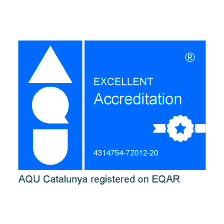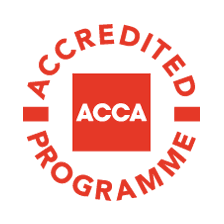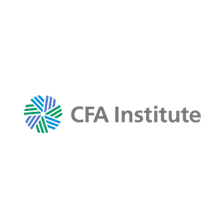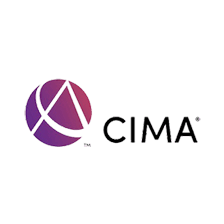
Do you want to be the kind of professional companies are looking for? This Master in Accounting and Financial Management prepares national and international students to lead the financial area of any organization.
Specialize in Corporate Finance, Controlling, or International Finance and develop a strategic, global perspective on business finance. Learn how to make impactful decisions, optimize key processes, and create value from day one. Classes will take place three afternoons per week.
We know that deciding to pursue a master’s degree isn’t just an academic choice — it’s an investment in your future. That’s why it’s important to understand what the Master in Accounting and Financial Management truly offers and how it can help you move forward.
What will you gain from this program?
- A solid education with strategic vision. You’ll learn how to align economic and financial factors with business strategy. You’ll master key concepts such as capitalization, indebtedness, and dividend policy, all applied to real-world cases.
- Tailored specialization. You’ll be able to shape your academic path according to your interests: Corporate Finance, Controlling, or International Finance and Accounting. If you choose the Corporate Finance track, you’ll also have the option of earning a double degree with the University of Montpellier – MOMA (France).
- Real-world learning approach. From day one, you’ll gain tools and knowledge you can apply directly in your professional environment. You’ll work with real cases, use current data, and develop your ability to make impactful decisions in complex and fast-changing financial contexts.
- Certified quality. This master carries the academic seal of Pompeu Fabra University, ranked the top university in Spain by Times Higher Education, and holds the EQUIS accreditation, the most prestigious global recognition for business schools.
- A network for professional growth. You’ll study alongside professionals from diverse backgrounds and industries. Here, networking isn’t just a bonus, it’s part of the learning experience. You’ll graduate with new connections, knowledge, and opportunities.
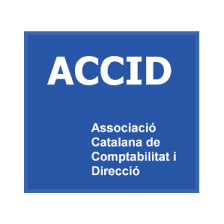
Why choose this program
The school’s reputation
UPF Barcelona School of Management holds the prestigious EQUIS accreditation — one of the most demanding international recognitions for business schools. We are the first school affiliated with a public university in Spain to receive it.
Flexibility to fit your life
Choose the format that works best for you: on-campus, hybrid, or fully online. Same content, same degree — different formats depending on your needs. You can also complete the entire program in English.
Outstanding faculty
You’ll learn from professors at UPF, whose Department of Economics and Business ranks among the best in the world. You’ll also be taught by active professionals in the financial sector who bring real-world experience directly into the classroom.
Career opportunities
You’ll have the chance to intern at top companies such as Danone, VidaCaixa, EY, Nestlé, or Boehringer Ingelheim, and build connections with institutions looking for profiles like yours.
CIMA and ACCA certification pathways
The program prepares you to pursue leading certifications like CIMA, ACCA, and CFA — a key asset if you aim to compete in the international finance market.
CFA accreditation
The master’s is part of the CFA Institute’s University Affiliation Program. You’ll be eligible to sit for the CFA exam, apply for one of two scholarships per edition, and take part in the CFA Research Challenge, a global competition with over 1,000 participating universities and business schools.
Specializations
The master is organized into three modules. The first two are common to all students and provide a solid foundation in accounting, finance, and business strategy.
In the third module, you’ll choose the specialization that best aligns with your professional profile and career goals.
Corporate finance
You’ll learn to design and implement financial policies, make strategic investment and funding decisions, and create value in the environments where major financial decisions are made.
Controlling
You’ll gain the core competencies required to work as a financial controller. From analytical accounting to advanced financial planning and sector analysis, this specialization prepares you to turn business strategy into measurable, sustainable action.
International Finance and Accounting
Prepare to work in a global financial environment. You’ll explore international accounting standards, global taxation, and the financial management of multinational corporations, developing a global perspective and gaining familiarity with international financial contexts.
Who is it for?
This master is designed for individuals who already have a background in economics, accounting, or finance and are ready to take the next step. It is aimed at both recent graduates and working professionals who want to take on new responsibilities or pivot their careers within the financial field.
This program is for you if…
- You studied Business Administration, Economics, Accounting, Finance, or Management.
- You work — or want to work — in finance, accounting, or management control departments.
- You’re looking for an official degree that combines academic rigor with hands-on application from day one.
- You want to move into more senior roles in financial management or consulting.
- You’re interested in pursuing globally recognized certifications such as CFA, CIMA, or ACCA.
- You value studying in an international environment, with active industry professionals and internship opportunities at top companies.
Accreditations
UPF Barcelona School of Management is the business school of Pompeu Fabra University, the 1st Ibero-American university and the 16th placed university in the world, among those under 50 years of age, according to the Times Higher Education ranking.
We hold the EQUIS accreditation, the most prestigious institutional recognition for business schools worldwide, placing us in the international elite of academic management education.
The Master in Accounting and Financial Management is an official degree recognized by the Spanish Ministry of Education. In addition,Quality Agency of the University System of Catalonia (AQU Catalunya) has institutionally accredited the UPF-BSM. This accreditation certifies all the official university master's degrees that we teach and recognizes the quality of our educational model in accordance with the criteria of the European Higher Education Area (EHEA).
The master provides access to the CIMA (Chartered Institute of Management Accountants), ACCA (Association of Chartered Certified Accountants) and CFA (Chartered Financial Analyst) accreditations.
Curriculum
The Master in Accounting and Financial Management is structured into three modules and three afternoons of classes a week. You’ll begin with two core modules focused on accounting, finance, and strategy. In the third module, you’ll choose your specialization: Controlling, Corporate Finance, or International Finance and Accounting.
You’ll also select two elective courses from a range of options, or choose the professional internship subject.
The program concludes with the Master’s Final Project, which you’ll develop throughout the academic year alongside your coursework — applying what you’ve learned to a project with real-world impact.
Accounting Management and Financial Accounting
- Critical vision with a comparative approach at the international level of accounting regulations (General Accounting Plan and International Financial Information Standards, General Accounting Plan for SMEs and Microenterprise Regime).
- Comparison with US GAAP regulations.
- Review of the latest research on accounting regulations and international accounting. Analysis of the latest trends and repercussions for the company.
- ICAC sanctioning procedures.
- Relevance of the consolidation of balance sheets in the cases of groups of companies
- Rules for preparing the consolidated annual accounts
- Formulation of consolidated accounts of corporations and groups of companies
- Comparison with international regulations. Review of the latest research on balance sheet consolidation.
- Analysis of recent changes in the legislation on auditing of accounts
- Critical vision with an international comparative approach of auditing regulations
- Auditing principles and standards
- Audit procedures. Audit reports. ICAC sanctioning procedures
- Internal audit and internal control
- Comparison with international regulations
- Review of the latest audit research
- Analysis of the latest trends and repercussions for companies and for audit firms. Special reference to the responsibility of the auditors.
- Current status of academic research and business practice in financial statement analysis
- Equity and financial analysis. Discriminant analysis. One-dimensional and multidimensional models
- Analysis of working capital. The relationship between working capital needs and actual working capital. Latest trends in working capital management
- Comprehensive analysis
- Analysis of the ability to generate profits, value and growth
- Comprehensive diagnosis of the company. Sensitivity analysis
- Relationships between cost accounting and financial accounting
- Current state of academic research and business practice on costs, with special emphasis on the different cost systems used by companies in the current context
- Activity-based cost management
- Relations with integrated information systems and other functional areas of the company
- Strategic cost management
- New trends in cost accounting
- Latest academic research on the subject
- Cost models of high growth companies
- New approaches to cost reduction. The low-cost model, quality and non-quality costs. Environmental costs. Consequences of cost reduction approaches in the company
- Relations with integrated information systems and other functional areas of the company
- Standard costs and variance analysis models
- Practical implementation of budget control models
- Review of the literature on new trends in budget control and management beyond budgets
- Budget management models of high-growth companies by sectors
- Link between strategy and control system
- Choice of monetary and non-monetary indicators
- Design of scorecards (balanced scorecard)
- Human aspects of management control
- Review of the literature on new trends in management control and foreseeable evolution of control in organizations
- Management control models in high growth companies
- Design of control systems that minimize the perverse effects of management control
- Case studies of successful companies and of failed companies.
Financial Management
- Relationships between financing policy and financial instruments
- Analysis of the impact of the macroeconomic environment and the behaviour of the intervening agents in the economic-financial situation of the company
- Review of the literature and the latest professional trends in the financial system
- Analysis of real operations traded in financial markets through the application of fundamental and technical analysis
- Review of the literature on analysis models of financial markets and stock investments
- Relations between investment policy and company financing
- Alternatives to fill the deficiencies of the different methods
- Choosing the most appropriate investment evaluation methods taking into account qualitative, fiscal, and organizational aspects and optimizing investment financing decisions
- Good investment evaluation practices in high-growth companies and special sectors
- Project finance.
- Latest trends in qualitative analysis of the company
- Current status of academic research and business practice in the field of business analysis and analysis of consolidated accounts
- Formulation of predictive models based on ratios (insolvency prediction techniques)
- Design of credit scoring and rating models
- Analysis of specific sectors
- Analysis of high growth companies, long-lived companies, failed companies and other types of relevant companies.
- Corporate finance: latest trends
- Current status of academic research and business practice in financial management
- Application of business valuation methods to real cases. Advantages and disadvantages depending on the sector and the company analysed
- Latest trends in business valuation and policies for value creation
- The perverse effects of value creation policies
Controlling Specialization
Corporate Finance Specialization
International Finance and Accounting Specialization
Elective Subjects: choose 6 credits (which correspond to two subjects or to the Professional Internship subject)
- IAS 16 Property, Plant and Equipment
- IAS 40 Investment Property
- IAS 12 Income Taxes
- IAS 23 Borrowing Costs
- IFRS 5 Non-current Assets Held for Sale and Discontinued Operations
- IFRS 16 Leases
- IAS 38 Intangible Assets
- IAS 36 Impairment of Assets
- IAS 2 Inventories
- IFRS 15 Revenue from Contracts with Customers
- IFRS 8 Operating Segments
- IAS 33 Earnings Per Share
- IFRS 10 Consolidated Financial Statements
- IFRS 11 Joint Arrangements
- IFRS 12 Disclosure of Interests in Other Entities
- IFRS 9 Financial Instruments
Master's Final Project
Note on the Curriculum
Complementary activities
In addition to the main academic track, the master offers a range of complementary activities and resources designed to enrich your learning, strengthen your professional profile, and connect you to a valuable international network.
International Certifications
The program includes targeted preparation and fast-track access to the following globally recognized certifications:
- CIMA (Chartered Institute of Management Accountants)
- ACCA (Association of Chartered Certified Accountants)
These are two of the leading credentials in financial and management accounting.
The content of the program also prepares you for the CFA (Chartered Financial Analyst) exam, one of the most respected global certifications in financial analysis and investment management. Each year, two CFA scholarships are awarded to students who wish to take the exam.
Training Supplement
- Introductory course (optional). If needed, you’ll have access to an accounting fundamentals course before the program begins, helping you level up based on your academic background.
- UPF-BSM Inside. Gain free access to a series of self-paced, 100% online cross-disciplinary courses in key areas such as applied data, communication, creativity, innovation, project management, sustainability, and leadership. These are available throughout the academic year.
International Experience
- International mobility program: After completing the master, you’ll have the opportunity to continue your studies at a top academic institution outside of Spain. This is an extracurricular activity with limited spots.
- Study Trip: If you choose, you can take part in an academic trip to a European city, where you’ll attend conferences and visit companies to broaden your global perspective on the financial sector.
Qualification obtained
After completing the program, and depending on their specialization, students will be awarded with the following degrees:
- Màster Universitari en Direcció Financera i Comptable de l’Empresa / Master in Accounting and Financial Management en l'especialitat en Finances Corporatives. Specialization in Corporate Finance - Máster Universitario en Dirección Financiera y Contable de la Empresa / Master in Accounting and Financial Management en la especialidad en Finanzas Corporativas. Specialization in Corporate Finance issued by Pompeu Fabra University.
- Màster Universitari en Direcció Financera i Comptable de l’Empresa / Master in Accounting and Financial Management en l'especialitat en Controlling. Specialization in Controlling - Máster Universitario en Dirección Financiera y Contable de la Empresa / Master in Accounting and Financial Management en la especialidad en Controlling. Specialization in Controlling issued by Pompeu Fabra University.
- Màster Universitari en Direcció Financera i Comptable de l’Empresa / Master in Accounting and Financial Management en l'especialitat en Finances i Comptabilitat Internacional. Specialization in International Finance and Accounting - Máster Universitario en Dirección Financiera y Contable de la Empresa / Master in Accounting and Financial Management en la especialidad en Finanzas y Contabilidad Internacional. Specialization in International Finance and Accounting issued by Pompeu Fabra University.
Issuance of official Master's Degrees: The amount stipulated in the DOGC (Official Gazette of the Government of Catalonia) must be paid for the rights to issue the title. This rate varies annually and the rate in force at the time of application for the degree will be applied.
Faculty
The faculty team brings a dual approach: a solid academic foundation combined with real-world professional application.
You’ll learn from professors in the Department of Economics and Business at Universitat Pompeu Fabra —ranked 1st in Spain, 3rd in Europe, and 46th worldwide by Times Higher Education— as well as from active professionals in the financial sector who offer a hands-on perspective based on their day-to-day experience in leading companies.
This approach ensures a balance between academic rigor and practical insight, helping you to understand key concepts in finance, accounting, and management, but also how to apply them in everyday decision-making.
Academic directors
Faculty
Collaborating faculty
- Jordi Anducas Planas
Technical Manager in RSM SPAIN AUDITORES.
Postgraduate course in Auditing from UAB. Executive Development Program from Esade. - Silvia Baron Gomez
BBVA Real Estate Business Unit.
Master in Banking and Finance (UPF - IDEC). - Ricardo Blasco Mínguez
Financial Manager with consolidated experience in multinational environments and transformational projects. He has developed most of his professional career in the multinational firm COTY. He currently works in PEPSICO.
Master in Financial Management from EADA. - Julio Capilla Vidal
Partner of RSM Spain Auditores since 2013. President of the Agrupación de Auditores de Baleares and member of the Board of Directors of the ICJCE.
Associate lecturer in the Accounting and Auditing Department of the University of the Balearic Islands.
Postgraduate course in Financial Management from Pompeu Fabra University Postgraduate course in Administration and Tax Management from the University of Barcelona.
Degree in Economic and Business Sciences from the University of Barcelona. - Pau Guerrero Vilà
Corporate Financial Director at Cervino Corporation.
Executive MBA from IESE.
Chartered Alternative Investment Analyst (CAIA). He also holds a Bachelor in Administration and Business Management and a Bachelor in Law from Pompeu Fabra University. - Juan Pablo Mejía
Industrial Engineer and MBA from the London Business School.
He has more than 11 years of experience in investment banking, capital markets, entrepreneurship and providing advice related to blockchain and crypto assets. He is also a professor of topics related to Bitcoin and cryptocurrencies since 2017 in universities, corporate workshops, events, and through his YouTube channel "Juan en Cripto" and the podcast "Tune into the Block". - Xavier Olsina Pau
Degree in Economics and Businesses Sciences from the University of Barcelona.
He was Treasury Manager at ENDESA, SEAT Volkswagen and AGBAR Group. Founding member of ASSET (the Spanish Association of Corporate Finance Officers and Treasurers). - Xavier Subirats Alcoverro
Master in International Business at ESCI - UPF
Degree in Business Administration from the Universitat Barcelona.
Partner at Amsel Assessors and professor of Business Administration at the Polytechnic University of Catalonia. - Tatiana Torres i Morè
Degree in Business Administration and Management from Pompeu Fabra University and Executive MBA from ESADE.
Economist with more than 11 years of experience in financial auditing at the international consulting firm PwC. Throughout her professional life, she has been a project manager for financial and control auditing and a member of the Technical Department. She has also been involved in capital market projects. Currently, she teaches university and post-university in the field of Economics and Business. - Víctor Vera Vinardell
Financial Director at Orange Catalunya.
Economist and Chartered Accountant. International Business Development at Essec. - Carlos Vivas Urieta
Director of Budgets and Fiscal Policy at Barcelona City Council.
Degree in Economics and Businesses Sciences from the University of Barcelona.
Methodology
The master’s program is designed with a hands-on learning approach. Sessions are highly participatory and combine the presentation of core concepts with the analysis of real-life cases, teamwork, and the use of tools that reflect current business realities.
The On-Campus & Live format allows you to take the program either in person or remotely, depending on what best suits your situation.
The class is divided into two stable subgroups: one on-campus and one fully remote (with a maximum of 15 spots). Both follow the same schedule and calendar, and participate in class simultaneously through a synchronous format.
Real Company Cases
You’ll work with real, up-to-date case studies that allow you to apply what you’ve learned and face challenges similar to those you’ll encounter in your professional life. Each case is an opportunity to sharpen your decision-making skills.
Team building
You’ll collaborate with classmates from diverse backgrounds, career paths, and nationalities. This constant exchange of ideas and perspectives will enrich your academic experience and strengthen your skills to thrive in diverse professional contexts.
Professional Business Challenge
You’ll put your skills to the test by tackling a business challenge based on a real case. Working in teams, you’ll develop a proposal and present it to a jury of senior professionals from companies like Sanofi or Henkel.
This experience connects directly with the professional world and rewards the best solutions with special recognition.
International Perspective
You’ll have the opportunity to get a firsthand look at how some of Europe's top financial institutions operate. You’ll attend on-site seminars led by finance professionals and gain a current, practical understanding of the international financial market.
Evaluation
Evaluation in the master’s program is continuous. Throughout the course, several components will be assessed, including:
- Case studies, exercises, and projects based on real business scenarios
- Exams in each subject area
- Class participation and presentations
- Attendance (a minimum of 80% is required
- Master’s Final Project
Assessment includes both individual and team-based activities, as collaborative work is also a key skill you’ll need beyond the classroom.
Tools
The On-Campus&Live methodology allows you to follow the program in person and also remotely.
In this modality, two stable subgroups are opened that will coexist throughout the course: one face-to-face and the other with 100% remote students. The remote students (a maximum of 15 places per course) will follow the program in a synchronous way with the face-to-face students. That is, they will share the same school calendar and schedule as the face-to-face students.
Project-oriented learning and the combination of lectures and active methodologies such as case studies, flipped learning, solving real problems, and professional simulations allow the student to connect theory and practice, acquire advanced skills, and achieve learning which is transferable to the job. The face-to-face modality is enriched with elements of online programs (virtual learning environment, multimedia resources, among others) so that the learning experience of the two subgroups is equally satisfactory.
You will have:
- Master's or postgraduate work to learn by doing
- A personal mentor to monitor your Master's Final Project or Postgraduate Final Project
- Digital resources to achieve transversal skills
- Interdisciplinary activities and workshops
- Digital resources and audiovisual blocks for online learning
- Active methodologies for transferable learning
Professional Future
This master is perfect for you if you want to grow within the finance or accounting field, pivot your career path, or build a solid foundation in a key area for any organization.
You might be taking your first steps or already have experience and are ready to move into more senior roles. In either case, this program will prepare you to make sound decisions, lead projects, and advance your career with confidence.

Student profile
Each edition brings together a diverse mix of profiles: recent graduates looking to start their careers in finance, and professionals already working in the field who want to specialize or change direction.
What they all share is a commitment to quality education and a desire to face real-world challenges with confidence and preparation.
Average age
Number of years of average professional experience
International students
Employability rate of the last 4 courses
Recommendations concerning the last 3 courses
Career opportunities
After completing the master, you’ll be equipped to take on leadership roles in finance, accounting, or consulting across companies of all sizes and industries.
The program also includes the option to undertake curricular internships to support your entry into the professional world. If you already have at least two years of experience in the field, you may apply for exemption from the internship requirement.
- CFO in any company or sector
- Financial accounting expert
- Business advisor and/or consultant
- CEO in an SME
- Controller and/or internal auditor
- Risk analyst in a financial department
- Founder and CEO of own project
- Financial analyst in a multinational company



